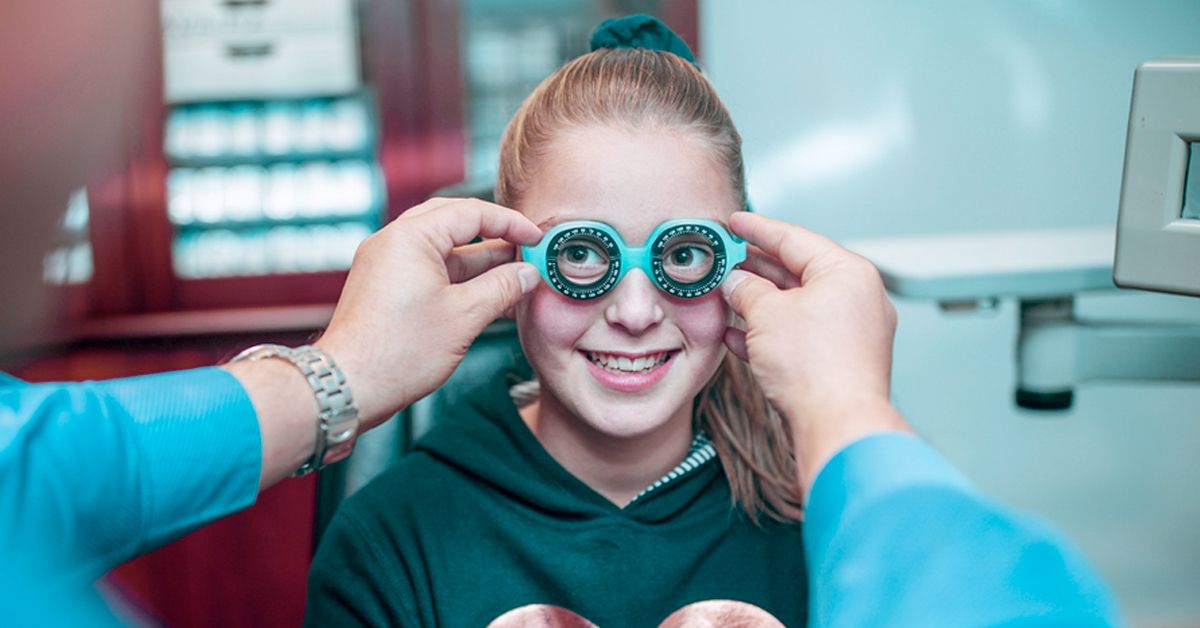Optometrist in Andalusia: Trusted Experts for Vision Health
Optometrist in Andalusia: Trusted Experts for Vision Health
Blog Article
Is Refractive Surgical Procedure Right for You? Elements to Consider for Better Eyecare
In the realm of eye treatment, the decision to go through refractive surgical treatment is a significant one that demands thoughtful consideration. From the intricacies of one's ocular wellness to the details of daily practices and personal assumptions, each element holds significance in the broader landscape of refractive surgical treatment candidacy.
Eye Health Analysis
When thinking about refractive surgical procedure, a comprehensive eye health assessment is critical to assess the suitability of the treatment for every person. eye doctors in andalusia. This examination involves a collection of evaluations and tests conducted by an eye care professional to determine the overall wellness of the eyes, the presence of any underlying conditions, and the security of the refractive error
Throughout the analysis, different aspects are taken into consideration, such as the client's case history, current eye prescription, corneal thickness, student size, and tear movie quality. These evaluations aid to recognize any contraindications to refractive surgery, such as corneal irregularities, cataracts, or unattended eye infections. In addition, the evaluation aids to manage client assumptions regarding the possible end results of the surgery based on their special eye characteristics.
Eventually, the eye wellness analysis is important in guaranteeing the safety and security and performance of refractive surgical treatment, as it provides important understandings right into the person's eye health status and assists establish one of the most ideal treatment options for attaining optimal visual outcomes. (eye center andalusia)
Lifestyle Assessment
An extensive lifestyle analysis is indispensable in identifying the viability of refractive surgical procedure for an individual's visual improvement requirements. Way of living factors such as line of work, pastimes, and day-to-day tasks play a crucial duty in the decision-making procedure relating to refractive surgical treatment.
Furthermore, way of living habits such as sports involvement, outdoor tasks, or also skin care regimens can influence the recovery process and overall success of refractive surgical treatment. People that involve in contact sports might need to take additional precautions to safeguard their eyes throughout the recovery duration. Furthermore, individuals with comprehensive sunlight exposure may need extra post-operative like prevent issues. By carrying out a thorough way of living analysis, eye care experts can customize their recommendations and treatment plans to meet the special demands of each individual, inevitably leading to enhanced visual outcomes and fulfillment.
Assumption Placement

Clients need to comprehend that while several people achieve 20/20 vision or much better following refractive surgical procedure, some may still require glasses for specific activities like reading or driving at evening. Managing these assumptions visit this site aids avoid dissatisfaction and dissatisfaction post-surgery, leading to a much more positive total experience for the person.
Risk Analysis

Aspects that may enhance the threat of problems consist of age, certain clinical conditions like autoimmune illness, unsteady vision prescription, slim corneas, and impractical individual expectations. In addition, selecting a experienced and experienced cosmetic surgeon, look at this web-site complying with pre and post-operative care instructions diligently, and disclosing any type of pertinent case history can aid mitigate risks.
To lessen the possibility of problems, ophthalmologists conduct thorough pre-operative examinations to determine any contraindications to surgical procedure. They likewise discuss the potential dangers and advantages with people throughout the assessment procedure. By engaging in open communication and shared decision-making, both the patient and the ophthalmologist can collaborate to determine if refractive surgical procedure is the best choice based on individual risk accounts and wanted outcomes.
Appointment Value
Considering the vital duty of informed decision-making in examining dangers and prospective complications in refractive surgery, the assessment process holds considerable importance in directing individuals towards optimum results. During the examination, the eye doctor reviews the person's eye health, refractive errors, and general suitability for surgical procedure. This initial analysis is important in identifying one of the most ideal procedure for each and every individual, considering elements such as corneal density, pupil size, and existing eye problems.
Moreover, the appointment functions as a chance for clients to discuss their assumptions, worries, and any kind of inquiries they may have regarding the surgical procedure. Clear interaction between the client and the specialist is important to ensure sensible expectations and a comprehensive understanding of the potential threats and advantages entailed.
In addition, the appointment permits the cosmetic surgeon to explain the various medical choices readily available, their particular outcomes, and the post-operative treatment required. This detailed discussion empowers patients to make knowledgeable decisions concerning their eye care, leading to far better fulfillment and results post-surgery.
Verdict
To conclude, people considering refractive surgical procedure ought to undergo a thorough eye wellness analysis, assess their way of life habits, align their expectations with possible outcomes, analyze the involved risks, and prioritize consultations with eye treatment experts. These elements play an important duty in figuring out the viability of refractive surgical treatment for each and every individual, ensuring optimum results and contentment with the procedure.
People thinking about refractive surgical procedure often have high assumptions concerning the outcomes, anticipating perfect vision without the need for glasses or call lenses. While refractive surgical treatment can greatly boost vision and lower reliance on visual aids, it is crucial for people to understand that results might differ based on individual elements such as the level of refractive mistake, corneal thickness, and general eye wellness.
By involving in open interaction and shared decision-making, both the ophthalmologist and the individual can function with each other to figure out if refractive surgical procedure is the ideal choice based on private risk accounts and desired outcomes.
Taking into consideration the essential duty of informed decision-making in evaluating dangers and potential issues in refractive surgical procedure, the appointment procedure holds significant importance in leading people in the direction of ideal end results. Throughout the consultation, the eye doctor evaluates the person's eye health and wellness, refractive errors, and total viability for surgery.
Report this page